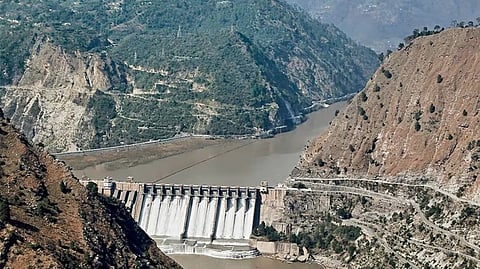

NEW DELHI: The farmers' organisation Bhartiya Kisan Union (Non-political) has urged Union Minister of Agriculture and Farmers’ Welfare, Shivraj Singh Chauhan, to initiate discussions with farmers from Punjab, Haryana, Rajasthan and Western Uttar Pradesh on the utilisation of the water from the Indus River Basin to address regional water shortages.
In its letter to Chauhan, the Bhartiya Kisan Union (BKU) called for rectifying the mistake made by the previous government regarding the agreement with Pakistan.
“It's time to correct the errors of previous governments concerning the Indus Water Treaty, which favours Pakistan over Indian farmers,” stated Dharmendra Mallik, spokesperson for BKU (Non-political).
Previously, many farmers' leaders supported the Indian government's decision to keep the treaty in abeyance or temporarily suspend it while demanding a review of its terms.
The 65-year-old treaty was suspended by India following the terror attack in Pahalgam on April 22, which resulted in the deaths of 26 people. This attack prompted India to carry out precision strikes targeting terror camps deep within Pakistan.
Mallik pointed out that farmers in Punjab, Haryana, Rajasthan, and Western Uttar Pradesh have been facing significant water shortages, which is impacting their crop production.
“We urge Chauhan to begin discussions with the farmers in these states on how to utilise Indus River water to benefit Indian agriculture. Access to water from the Indus River Basin could transform the agricultural landscape of these states,” said Mallik.
The treaty, signed in 1960, restricts India’s use of the western rivers Indus, Jhelum, and Chenab, primarily for the benefit of Pakistan. Since then, Pakistan has continuously stalled Indian proposals to construct hydropower plants on these rivers under various pretexts.
Reports indicate that the Ministry of Jal Shakti has prepared detailed project proposals for submission to the Cabinet. The proposed projects include Sawalkot Stage II (1,856 MW), Kirthai Stage II (930 MW), and Dulhasti Stage II (260 MW) on the Chenab.
India is also considering doubling a 120 km section of the Ranbir canal on the Chenab River, which runs from India to Pakistan. The treaty was established long before the canal was constructed in the 19th century.